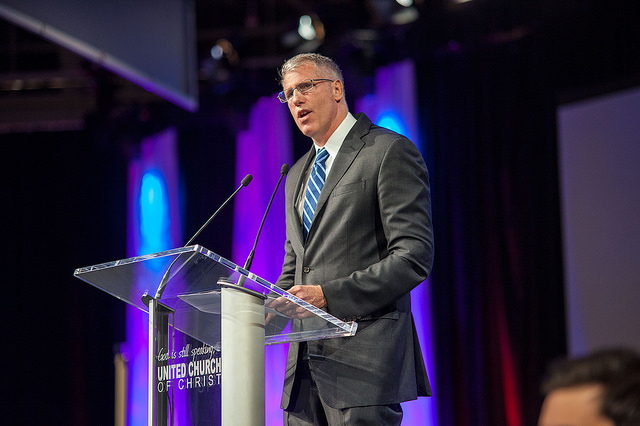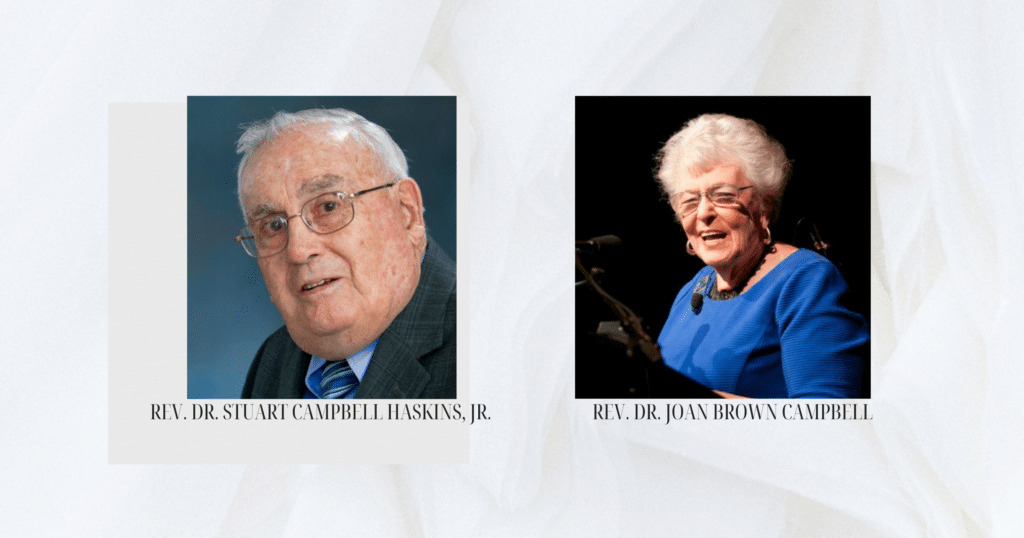A Struggle for the Soul of the Church
 “Church is not a particularly fashionable place these days,” said the Rev. Paul Raushenbush. General Synod 30″s theme, “Unexpected Places,” implies that a building with a steeple is an odd place to find the love of God.
“Church is not a particularly fashionable place these days,” said the Rev. Paul Raushenbush. General Synod 30″s theme, “Unexpected Places,” implies that a building with a steeple is an odd place to find the love of God.
“Well, don”t tell that to Mother Emanuel Church in Charleston,” he warned, and don”t tell the young man who assassinated the Beautiful Nine. “Within a brutally hostile world, Emanuel provided spiritual power, dignity, and active resistance” throughout its long history, Raushenbush reminded delegates. It provided a place of healing for those injured by the racism of America.
“We saw the power of the Church when just days after the shooting the congregation re-opened, held worship, and refused to let sin and death have the final word.”
The struggle for the soul of the Church continues, however, he said. Congregations were complicit in Jim Crow and founded private “Christian” schools to keep segregation alive. The Ku Klux Klan just this week declared that it is primarily a “Christian organization.”
Thus the struggle for the soul of the Church.
Raushenbush, the executive and founding religion editor of the Huffington Post, brought his own story of finding grace in the embrace of the Church. He came as a gay recovering addict, invited by his cousins to Judson ABC/UCC Church in New York City. “I actually went, which is a miracle,” he said. “And the moral of that story, in case you missed it, is that it”s OK to invite people to church.”
He came to love the Church because it taught him that he was beautifully and wonderfully made. That affirmation, for so many people, is the difference between life and death. “I can testify,” he professed, “that you are literally saving lives.”
Quoting the Rev. Clementa Pinckney, martyred with the eight others at Emanuel AME, he declared that the Church can be identified as the place where people find freedom. As other institutions of the world discriminate, denigrate, and even murder, the Church is the place where they find safety and power.
Having commended the UCC and communions like it that provide that safety, Raushenbush issued two challenges, unexpected places where the United Church of Christ must engage in the struggle for the soul of the Church. The first, he said, is campus ministry. When he served as associate dean of religious life at Princeton University, the UCC campus chaplaincy closed, and has not reopened. In contrast, 25 other, more conservative denominations have active campus ministries. “Who do you think,” he asked, “is winning the struggle for the soul of the Church?”
He called UCC leaders to engage on the Internet as well. “The Internet is too important, too wonderful, and too dangerous for the Church to sit it out,” he insisted. “This is a struggle for the soul of the Church.”
He urged churches to adopt a social media strategy — and not to rest content on a website. “Be intentional about your online presence because there is no virtual reality and real reality,” he said. “It”s all real.” He told the delegates to join Twitter and to follow @unitedchurch (and about 50 of them promptly did).
“The world is crying out for redemption, for liberation, for freedom,” Raushenbush said. “Let”s be God”s Church in both expected and unexpected places, and respond to that call.”
Related News
Peace Be With You…
“…And also with you” is the response on Sunday mornings and on occasions where the peace...
Read MoreBreaking barriers and forging loving partnerships: Two servants of God are remembered
This Eastertide, the United Church of Christ remembers the Rev. Dr. Joan Brown Campbell and...
Read MoreGetting down and dirty in the soil: Rural congregation discovers ‘life has the last word’
The Rev. Julia L. Brown has a love/hate relationship with this time of year. “I dislike...
Read More



